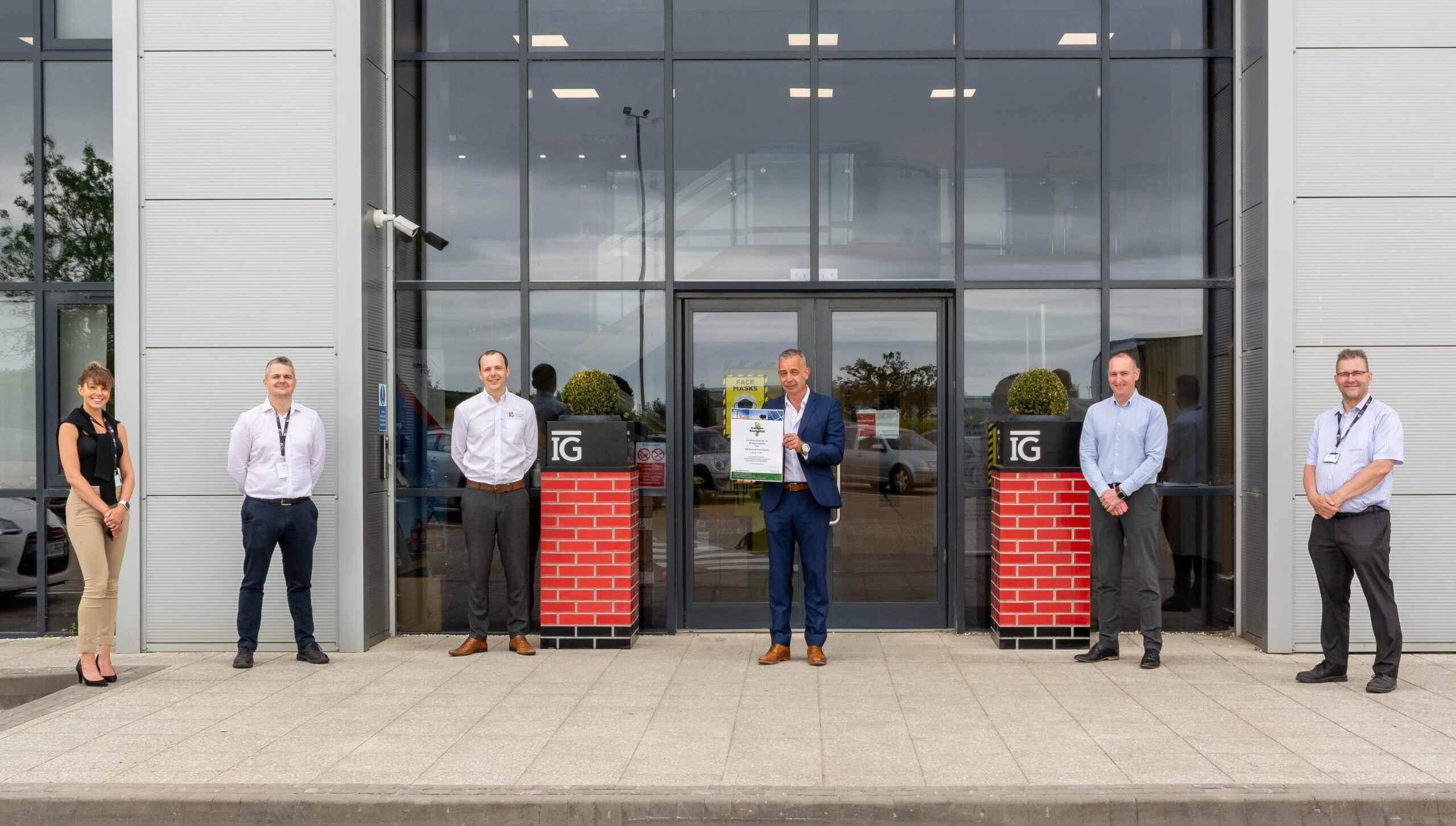The delivery of sustainable buildings has been a focus for many years, writes Andy Neal, Managing Director of IG Masonry Support, but with the UK government requiring the country to be net zero by 2050, the need for the construction industry to improve its emissions output has become more acute.
Whilst buildings that offer low energy in-use are critical, the environmental impact of materials and their production is just as important. If manufacturers are to fully take ownership of their sustainable responsibilities, it will require making a holistic assessment of their overall environmental impact. This includes focusing on their day-to-day production processes, which will play a large part in delivering low carbon buildings of the future. Therefore, committing to a companywide approach, rather than focusing solely on the environmental credentials of its products, is integral to a successful carbon zero strategy.
Taking the initiative for product innovation
IG Masonry Support’s carbon zero programme was set up because we as a company wanted to be recognised as a sustainable organisation in our own right, regardless of what other businesses were doing. But it also dawned on us that manufacturers such as ourselves had a big responsibility to innovate the low carbon products the construction industry needed to increase the carbon efficiency of the UK’s future building stock.
Providing a wider range of sustainable products will give builders greater influence when it comes to the reducing environmental impacts of the properties they are creating. This is far from the case, currently. It’s estimated that even major housebuilders have only 1% control over the building process, because everything they build with is supplied by a host of different sources which vary in sustainable composition and performance. Therefore, to build with greater efficiency and consistency, construction companies need to engage with responsible sustainable manufacturers, who in-turn need to innovate products that result in less environmental impact. Improving building sustainability isn’t a standalone exercise. Individual companies have the capability to control the eco-friendly aspect of their business and products. Ultimately, however, it’s the responsibility of the building supply chain to innovate solutions that provide end users with the best possible chance of creating sustainable buildings.
Sustainable steps
The first major steps in our sustainability journey were taken when we switched to 85% recycled stainless steel and reduced our landfill waste to 0% in 2018. We have continued to take leaps towards achieving our ambitions and more recently became a carbon neutral organisation. This was achieved by enlisting the services of an external body (Carbon Footprint) whose initial task was to clarify how far short we were from our target. Following this assessment, we embarked on an offsetting programme to reduce the business’s CO2 emissions. We further reduced our emissions footprint by changing to a ‘green’ utility supplier and swapping our diesel trucks for an electric fleet. Furthermore, our purchase of less energy intensive fibre laser cutting machinery has also reduced our material waste.
The introduction of our carbon neutral programme coincided with the launch of our B.O.S.S A1. an ultra-lightweight brick on soffit system. As a component building part, its carbon neutral status was important to us. Its certification soon led to the company’s carbon neutral classification in June 2021. Achieving this required us to do our homework to fully establish what carbon neutrality actually consisted of, as well as understand the legislation behind it. For this we recruited a Sustainability Manager from within the company. Having a staff member being trained by external bodies to ensure companies within our group were fully-versed in carbon neutral legislation was an important step for us. Our Sustainability Manager now heads-up a team of volunteer staff who meet weekly to discuss ways in which we can progress our net zero ambition.
In terms of our offsetting initiative, rather than simply plant trees, we’ve invested in long-term sustainability energy programmes. Hence, our commitment to wind and solar schemes. Through our acquisition of a gap analysis template, we hope to demonstrate how such schemes are significantly reducing our offsetting requirement less and less each year.
Following the science
Our actions do not stop there, however. We are following Science-Based Targets Methodology, which has achievement parameters of between five and 15 years into the future. This process is being carried out alongside our collaborative workshops with the British Standards Institution, which have helped sculpt a sustainable culture into IG Masonry Support. It’s helped formed an approach to sustainability that focuses on optimising our social, financial and intellectual capital, as well as our environmental wealth. These key elements ensure our strategy is inclusive, reflects our company values and importantly, will be successful. It is our mid-term aim to reduce our Scope 1 and Scope 2 emissions by 76% which covers direct emissions from owned or controlled sources, and indirect emissions from the generation of purchased electricity, steam, heating and cooling consumed by the reporting company, respectively.
I believe we attained carbon neutral status sooner than anticipated because of the company’s inherent desire to do the right thing, rather than wait to have measures forced upon us. Whether it’s achieving ISO 9001 certification or matters related to any form of industry compliance, our approach is always the same. We don’t carry out these processes as a box ticking exercise by rushing to get all the paperwork the day before the auditor comes in. We have a dedicated sustainability team set up who are passionate about driving this forward. We do it properly because we want to advance our business’s carbon zero status, the quality of our product and help facilitate a sustainably-built environment for future generations to enjoy.
Check out IG Masonry Support’s Sustainability Journey>>



